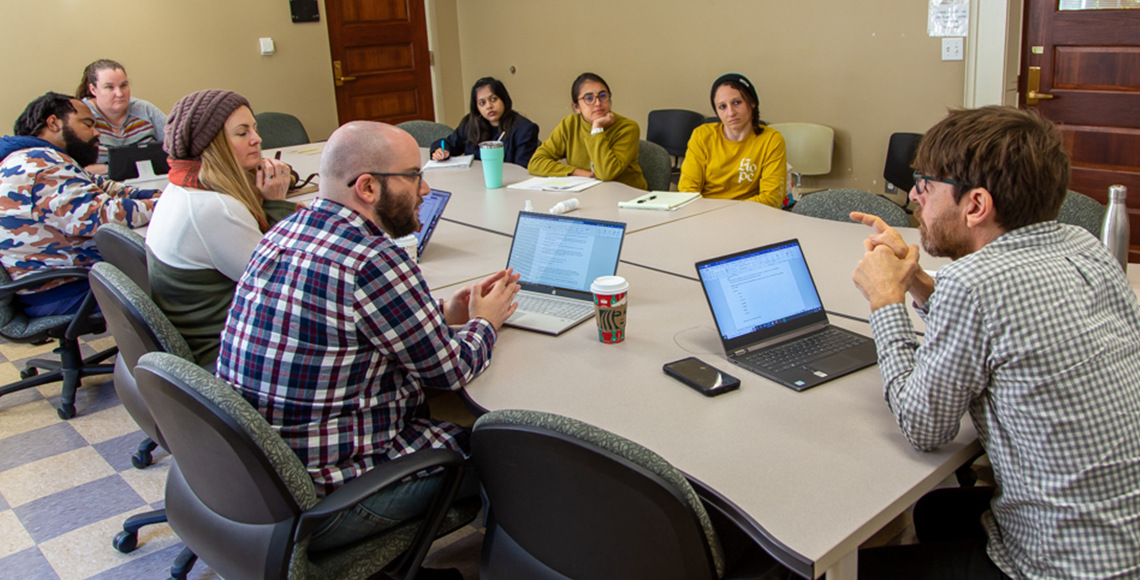Embrace academic excellence
Hone your research and analytical skills through focused research clusters examining gender and family, health and well-being, social psychology and social networks.
Students in our graduate programs engage in rigorous academic analysis in a highly productive department. They work with award-winning faculty members with focused expertise in a lab space curated for sociological research.
We keep our graduate cohorts small so you receive support and attention from mentors who take a genuine interest in your success. Because of the outstanding faculty support, our students have high publication records and earn competitive placements for internships and jobs.
Programs
We offer two graduate programs. Applicants benefit from a social sciences background, but it is not essential to success in our programs.
- Sociology, M.A.
- Sociology, Ph.D.
If you don’t have a master’s degree, you can still apply for the Ph.D. program in sociology. You will then earn an M.A. during the course of your Ph.D. work.
The average time to complete a Ph.D. is about six and a half years for students with a bachelor's degree. Students entering with an M.A. in sociology will finish in less time.
Curriculum and Requirements
Looking for more specific information about sociology courses offered and graduation requirements? Check the academic bulletin.
Find answers to your questions
Our Graduate Student Handbook [pdf] helps guide you through the department-specific requirements for your degree and is a complement to the Graduate Studies Bulletin. For further information, contact our Graduate Program Director, Andrea Henderson at 803-777-3123.
Department Awards
We recognize our graduate students annually with various awards for academic and teaching excellence.
- The Graduate Student Teaching Award recognizes outstanding teaching and excellence in the classroom for a student who is an instructor-of-record.
- The Graduate Student Publication Award for both sole-authored and co-authored publications.

